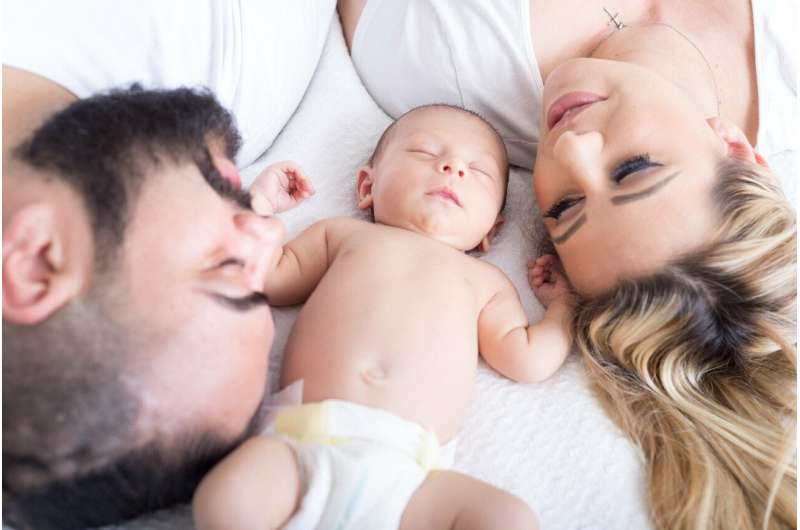Young adults caught in a dilemma between traditional family models and modern views

A study funded by the Swiss National Science Foundation has found that even young adults who do not yet have children are influenced by traditional concepts of family. At the same time, they have modern views of equality, career engagement and childcare. The result is a dilemma that affects not only young women, but also young men early in adulthood.
Combining work and family is widely known to be an exhausting balancing act. To date, research into the subject has focused primarily on women who already have children. However, very few studies have investigated how adults with no children view their professional future and later family life. With funding from the Swiss National Science Foundation, researchers led by Andrea Maihofer set about exploring this issue. The team from the University of Basel's Centre of Gender Studies carried out 48 qualitative interviews with young adults in their early thirties or younger. The interviewees were selected from a longitudinal study of 6,000 people. The scientists have summarised their results in a public discussion paper.
In a society that regards itself as emancipated, the findings of their analysis are surprising. Men still assume that they will become the family breadwinner. Simultaneously, they also want to be present in their children's lives right from birth. In a mirror image, women do not expect to have to bear the main financial responsibility for their family in later life. At the same time, and despite a growing identification with career, they regard the task of childcare as primarily their responsibility. As a result, both genders face a dilemma even before they become parents. In facing it, they regard the division of employment and childcare as a matter that each married couple have to decide for themselves, without assistance from society.
The future fathers
According to the researchers, men were content for a long time to play a more active role as fathers only as their children got older. Fathers getting involved in childcare at an early stage is a new development. Nowadays, virtually all men would like to reduce their working hours to four days a week. "However, the career progression that young men still aspire to is frequently only an option if they work full time," says Andrea Maihofer. The future fathers feel their working environment is very inflexible to dismissive in its attitude to part-time working and work-life balance. Nevertheless, they do not take steps to bring about change, for example by getting involved with political organisations.
The future mothers
"Young women also face a dilemma even before they have children," states Andrea Maihofer. They attach greater importance to maintaining their professional identity than they used to, and worry about losing their autonomy if they go on to have children. Despite this, they do not expect to have to bear financial responsibility for their family. They also feel that the working world is too rigidly structured and full of obstacles. As an illustration, in the interviews they often said they would need "good luck" – for example an understanding boss – to be able to satisfactorily combine career and family life one day.
Personal responsibility
Despite still being influenced by stereotypical role models, the future parents reject the idea of an inter-gender hierarchy. In their conclusions, the researchers emphasise that the young men and women will have to laboriously experiment with the traditional and modern concepts of family that they simultaneously espouse because there are virtually no new models for them to draw on.
The young adults expect that the division between career engagement and family involvement will be strongly determined by the father and mother "type" in each case, and will have to be resolved on an individual basis. "Because they regard mothers and fathers as individually unique, the young adults perceive the question of how to ensure equality in the way they structure their family and career lives as their exclusive problem," says Andrea Maihofer, commenting on this finding. She feels it harbours the risk of "distorting the way people view the responsibility of society and the state", a risk that she believes will only be increased by the talk of personal responsibility that is currently popular in politics and society at large.
Provided by Swiss National Science Foundation



















